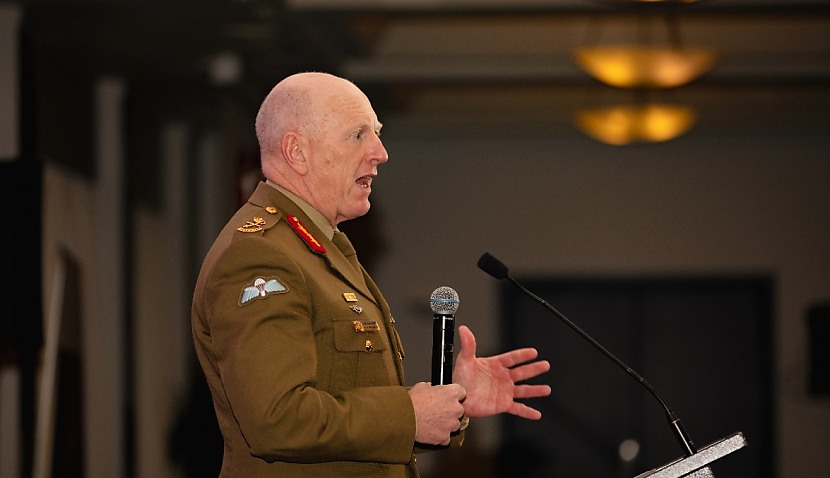
Lieutenant General John Frewen told the Space Industry Association of Australia’s (SIAA) Southern Space conference that the APAC region’s strategic environment is becoming more challenging and the space domain is “not immune”.
Frewen is the chief of the Joint Capabilities Group (JCG), which recently took over control of Space Command from the RAAF.
Unlike RAAF, JCG supports Defence by providing “enabling capabilities”, including logistics support, health services, and military education and training.
The Labor federal government said it hoped the change would “increase the importance” of Space Command and allow it to integrate better with other military branches.
In his first public speech to the space industry, Frewen spoke about the structural changes that have taken place and the reason behind them.
“For defence, effective space capabilities are critical to all defence operations, enabling the projection and protection of national power,” he said.
“Our Defence Forces rely on access to space systems and satellites for intelligence, communications, and navigation. For defence, space power means the strength of our ability to conduct and influence activities to and from space.
“And this requires more than just the employment of space systems. It demands a coherent joint and integrated approach in the space domain.
“And Australia’s space power and capabilities increase, so too, do our potential adversaries’. Our competitors are highly adaptive and are moving so quickly that any advantage we have can be expected to be short-lived.
“Our future in space is about agility and adaptability. Our strategic environment is changing rapidly. Sophisticated technology and data, which was once the domain of a select few, is now ubiquitous. We need to challenge our thinking about sustaining a capability edge.”
Frewen warned that several nations have now fielded capabilities seeking to prevent our access to space and the services we obtained from our satellites.
“Prospective adversaries are also testing and fielding sophisticated counter-space capabilities, which are able to disrupt and degrade free access to the space domain,” he said.
“In response, we are seeking to advance our space capabilities and resilience through three broad lines of effort.
“One, assured access to space domain, offensive and defensive space control.
“Two, the ability to gain and maintain space domain awareness. Three, enhanced capacity to provide space services to the integrated force.
“The most critical element to achieving our mission is to build a highly skilled defence space workforce.
“We know our people and our culture are fundamental to all we can and must achieve.”
The Defence Strategic Review, or DSR, was described as the biggest shake-up in Australia’s defence policy in decades and resulted in $19 billion being spent to implement its immediate recommendations.
However, despite increasing space’s importance, it ruled out turning Space Command into a US-style Space Force equal to the Army, Navy, and Air Force.
The report – penned by former defence minister Stephen Smith and former defence chief Sir Angus Houston – also said a method should be established for building and sustaining a trained Defence space workforce, including a defined career path.

Adam Thorn
Adam is a journalist who has worked for more than 40 prestigious media brands in the UK and Australia. Since 2005, his varied career has included stints as a reporter, copy editor, feature writer and editor for publications as diverse as Fleet Street newspaper The Sunday Times, fashion bible Jones, media and marketing website Mumbrella as well as lifestyle magazines such as GQ, Woman’s Weekly, Men’s Health and Loaded. He joined Momentum Media in early 2020 and currently writes for Australian Aviation and World of Aviation.
Receive the latest developments and updates on Australia’s space industry direct to your inbox. Subscribe today to Space Connect here.









